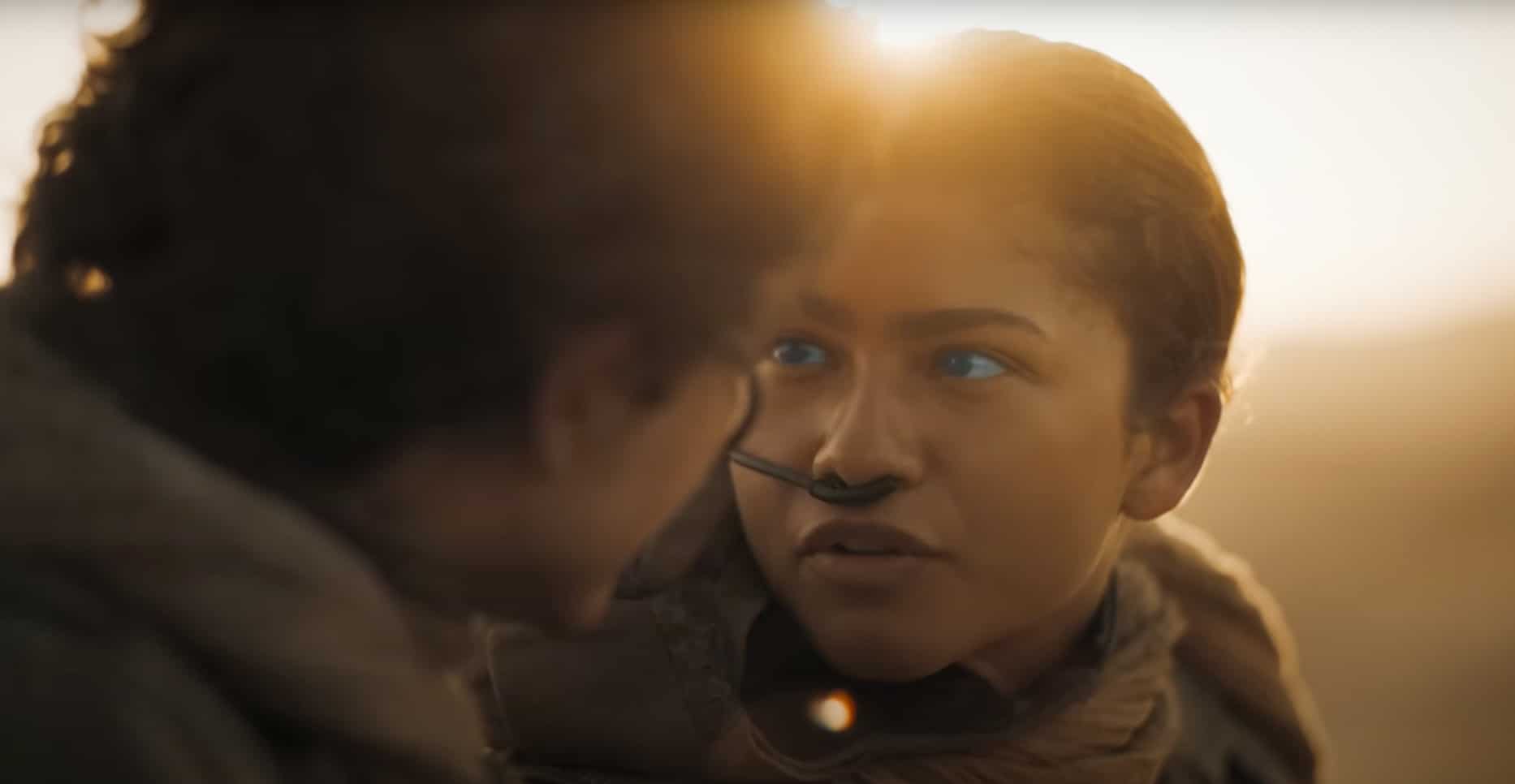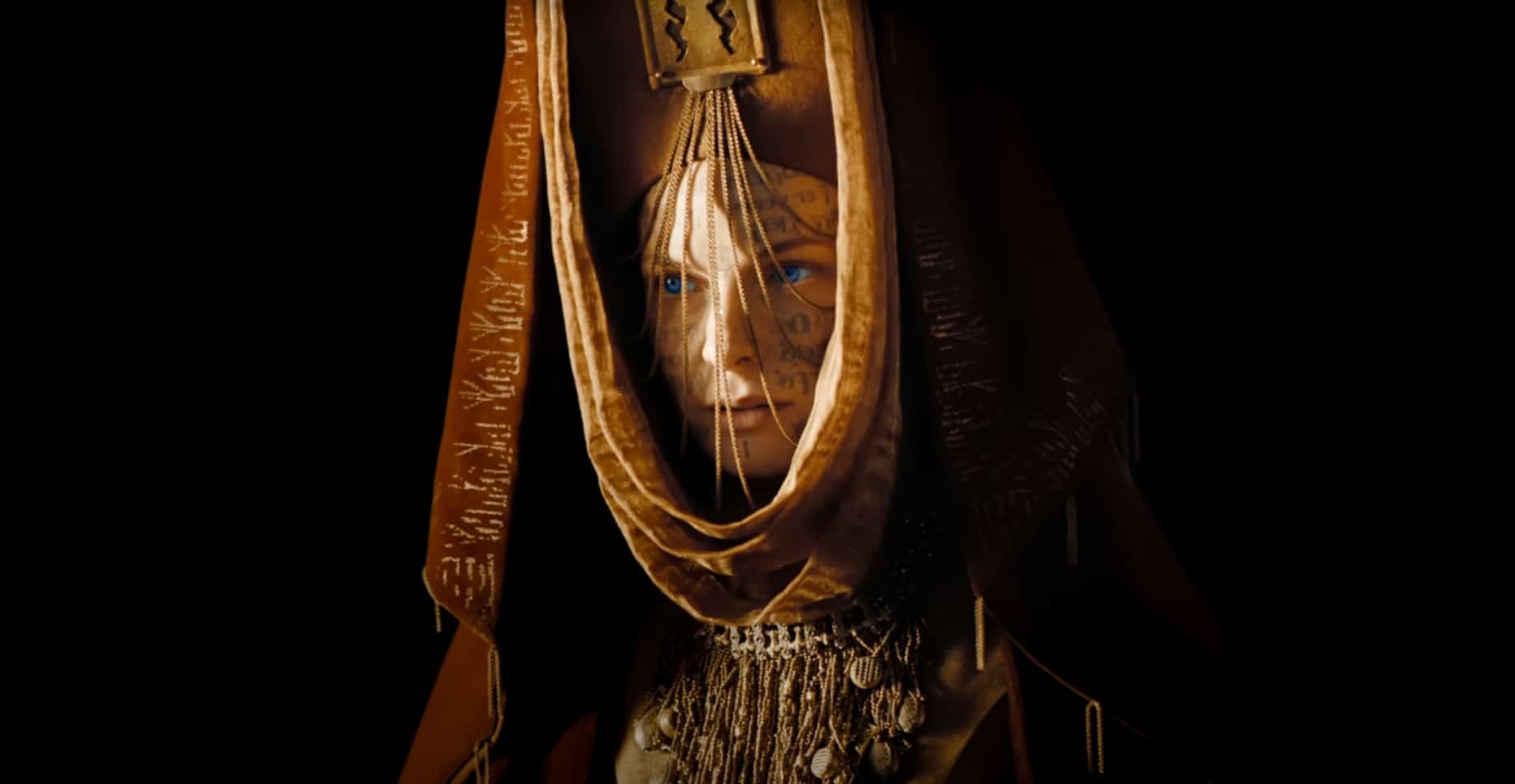
Contemplating the story of a prophesied messiah, who has come out from the desert to save his people, is hardly out of the ordinary during Lent.
But Catholics who see Denis Villeneuve’s sci-fi epic Dune: Part Two while preparing for Easter will no doubt be moved to reflect on the difference between true and false Messiahs.
Dune II begins where Part One ended, with Paul Atreides (Timothée Chalamet) and his mother, Lady Jessica (Rebecca Ferguson), welcomed among the desert-dwelling Fremen after house Atreides was massacred by the evil Harkonnens for control of the spice trade.
Over the course of months, Paul learns to survive and fight in the desert, and his mother ascends to become the tribe’s new “Reverend Mother.”
During this time, word grows among the Fremen that Paul is the “chosen one” who is prophesied to lead their people to paradise.
Paul knows his mother has encouraged the “prophecy” through her influence as the Reverend Mother, but he denies he is the chosen one, because he has fallen in love with Chani (Zendaya), a fremen fighter whose scepticism keeps him grounded.
As the attacks from the Harkonnens intensify, Paul’s mother pressures him to embrace the prophecy and become the messiah that many see him to be, regardless of the consequences he foresees in visions and dreams.
As in Frank Herbert’s novel, Dune II holds a cynical view of organised religion, the power of faith and the use of propaganda in manipulating the masses under the guise of hope.
Though the film touches upon other issues—such as oil in the middle east and the use of atomic weapons—the pursuit of power and the corrupting effect it has on the spirit underpins the film’s narrative.
Power over Arrakis’ spice—a powerful psychoactive substance that enables humankind to “fold space” and traverse the stars—drove the emperor to betray his Duke Leto Atreides and wipe out his noble house
The desire for power compelled the Bene Gesserit to create false prophecies and embed them in the foundations of civilisations over centuries for their personal gain and ultimate control.

And it was the desire for power that corrupted Paul’s resolve to take the moral path, turning him towards destructive ends.
Dune’s cynicism shows why the church is so careful about how it portrays the true messiah, Jesus Christ, and just how dangerous false messianism can be.
Unlike Christ, who left the desert having defeated Satan’s temptations, Paul leaves the desert in Arrakis having fallen prey to each one.
This Machiavellian messiah promises to turn stone into bread by transforming the sands of Arrakis into a green paradise, throws himself into danger to prove his place in prophecy, and seeks to take control over the great kingdoms of his world for his own rule.
Totally blinded by corruption, Paul fails to imitate the true Messiah in sacrificing his earthly power for the sake of his people and instead sacrifices millions of his own people for the sake of his power.
Catholics may also be surprised by the film’s explicitly pro-life portrayal of Alia, Paul’s younger sister.
Though Alia is a young child in the book, Villeneuve chooses to show her as a baby growing in Jessica’s womb throughout the entire film.
What’s more, after being imbued with powers from the “water of life,” Jessica is able to speak to her unborn child and frequently converses with her about Paul and the events that are unfolding.
Villeneuve and cinematographer Greig Fraser have turned out another breathtaking experience, producing some of the greatest visuals in recent cinematic times.
Seamlessly integrating CGI with real-life locations, Fraser and his creative team explore the immense expanses of Arrakis through beautifully crafted compositions, playing with distance, angles and focus in order to bring the desert planet to life.
Scale is a crucial element in bringing this story to life while giving the subject weight and meaning—whether it be the giant Harkonnen mining vessels churning across the sand or the delicate desert mouse that springs forth from its burrow to catch the morning dew on its ears.
Every shot decision has a purpose and an intentional effect that not only aids the film in its world-building but propels the narrative forward without relying on exposition and overstated dialogue.
This is clear when moving from Arrakis to the Harkonnen home of Giedi Prime where the arena fight scene was almost entirely devoid of colour, distinguishing the villains’ planet with a deep sense of dread.
Building upon the cinematography were detailed costume and set designs which produced fully realised worlds and rich cultures.
This film must be seen on the big screen to appreciate the epic visuals, along with Hans Zimmer’s epic scores.
Complimenting Dune II’s captivating visuals, the film’s star-studded cast deliver passionate performances with depth and authenticity.
Chalamet does well to capture Paul Atreides’ compassion and humanity in learning to live and love as one of the Fremen and embracing their culture.
As Paul’s struggle with taking the destructive path of messiah intensifies, Chalamet is truly compelling as he reveals this internal conflict and the protagonist’s gradual moral demise, which St Bernard of Clairvaux already described in the 12th-century: “the road to hell is paved with good intentions.”
Unfortunately, due to pacing issues in the third act, Chalamet doesn’t quite embody Paul’s fallen persona and his delivery comes across as awkward and unbelievable.
Perfectly playing the voices of rebellion and reason, Rebecca Ferguson and Zendaya put in outstanding performances as Paul’s mother and love interest respectively.
Ferguson’s portrayal of Lady Jessica and her subsequent transformation into the Reverend Mother is as intense as it is engaging.

She commands the screen with subtlety as each icy glare and unsettling expression reminds the audience how corrupt Jessica has become, in her desire to claim Paul’s destiny for the Bene Gesserit.
Though the Reverend Mother is relentless in pushing on her son the path of manipulation and false prophecy, Paul’s Fremen love Chani is as determined to keep him on the straight and narrow.
Zendaya shines in the first two acts as her sincerity and vulnerability gives credibility to Chani and Paul’s blossoming relationship, marking her place as his moral compass.
With Chani sceptical of the fundamentalist Fremen prophecies from the start, Villeneuve keep’s the story engaging by making her heart a counter-balance to Jessica’s deception.
Unfortunately, Zendaya’s third act performance also suffered due to pacing issues and a lack of time given to properly unpack Chani and Paul’s demise as he takes over the Imperium, knowing that it will lead to a Holy War and the death of millions.
Other standouts in supporting roles include Austin Butler as the psychopathic Feyd-Rautha, Stellan Skarsgård as Baron Harkonnen and of course Javier Bardem as a funny yet fanatical Stilgar.
Unfortunately the same can’t be said for Christopher Walken as Emperor Shaddam IV and Florence Pugh as Princess Irulan, whose brief appearances serve more as exposition than characterisation.
Villeneuve’s adaptation of Frank Herbert’s unwieldy novel emphasises its grimmer themes of revenge over redemption and slaughter over self-sacrifice.
Yet without the truly messianic themes of love, healing and forgiveness, the audience is likely to leave the theatre unsatisfied despite Dune II’s remarkable visuals, sets pieces and performances.
Dune: Part Two, rated M for Science fiction themes and violence, is currently showing in cinemas across the country.
